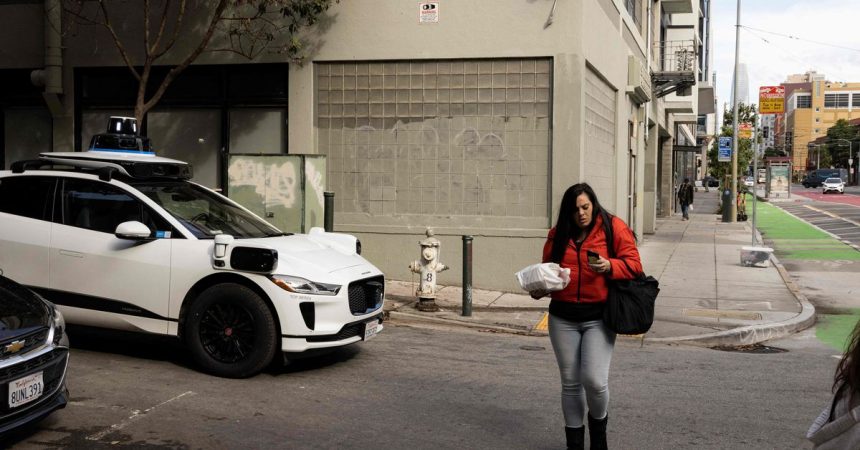Waymo’s Autonomous Vehicles Demonstrate Superior Safety Performance Compared to Human Drivers: An Analysis of Insurance Data
Waymo, a leading autonomous vehicle company, has partnered with Swiss Re, a global reinsurance giant, to conduct a comprehensive safety analysis of its self-driving technology. This study, leveraging insurance claim data, offers valuable insights into the real-world performance of Waymo’s autonomous vehicles and their potential to significantly enhance road safety.
The study focused on 25.3 million fully autonomous miles driven by Waymo’s vehicles across four major US cities: Phoenix, San Francisco, Los Angeles, and Austin. This extensive dataset was compared against human driving baselines derived from Swiss Re’s vast repository of over 500,000 claims and over 200 billion miles traveled. The results reveal a remarkable safety advantage for Waymo’s autonomous vehicles. They exhibited an 88% reduction in property damage claims and a 92% reduction in bodily injury claims compared to human drivers. This translates to just nine property damage claims and two bodily injury claims for Waymo across the 25.3 million miles, while a comparable human driver would be expected to incur 78 property damage and 26 bodily injury claims.
To further solidify the safety benefits of Waymo’s technology, the study also compared its performance to new vehicles equipped with the latest advanced driver-assistance systems (ADAS), such as automatic emergency braking, lane-keep assist, and blind spot detection. Even against this benchmark of modern safety technology, Waymo’s autonomous driving system still showcased a significant safety edge, with an 86% reduction in property damage claims and a 90% reduction in bodily injury claims. This suggests that autonomous driving technology, at its current stage of development as represented by Waymo, possesses the potential to surpass the safety performance of even the most technologically advanced human-driven vehicles.
The findings of this study have been submitted to a scientific journal for peer review and publication, underscoring Waymo’s commitment to transparency and scientific rigor in evaluating the safety of its technology. This move aims to contribute to the ongoing and often contentious debate surrounding the safety of autonomous vehicles.
The Imperative for Safer Roads: Addressing the Traffic Fatality Crisis
The backdrop for this study is the alarming reality of traffic fatalities, which claim approximately 40,000 lives annually in the United States alone. Proponents of autonomous vehicle technology, including Waymo, argue that these self-driving systems offer a crucial solution to this crisis. Unlike human drivers, autonomous vehicles are not susceptible to fatigue, distraction, or impairment, thereby eliminating a major source of human error that contributes to crashes and fatalities. The consistent performance and adherence to traffic rules exhibited by autonomous vehicles are touted as key advantages in mitigating the risks associated with human fallibility.
However, skepticism surrounding the safety of autonomous vehicles persists, primarily due to the relatively limited mileage accumulated by these vehicles compared to human drivers. With humans driving close to 100 million miles between fatal crashes, significantly more data from autonomous vehicles – potentially hundreds of millions of miles – is needed to draw definitive conclusions regarding their long-term safety performance. This data disparity poses a challenge in making statistically robust comparisons between human and autonomous driving.
Alternative Perspectives on Road Safety and Urban Mobility
While Waymo and other autonomous vehicle proponents advocate for self-driving cars as a solution to road safety challenges, alternative viewpoints exist. Urbanists and safety advocates often emphasize the need to reduce overall car dependency and prioritize alternative modes of transportation, such as cycling, public transit, and walking. They argue that transforming urban environments to support these car-free options can significantly enhance safety and create more sustainable and livable cities. This perspective highlights the multifaceted nature of the road safety issue and the potential for broader societal changes beyond the adoption of autonomous vehicles.
Waymo’s Transparency and Commitment to Autonomous Vehicle Safety
Despite the ongoing debate and the need for further data, Waymo remains steadfast in its conviction that autonomous vehicles will play a crucial role in reducing crashes and improving road safety. The company’s willingness to publicly share collision data, exemplified by this collaboration with Swiss Re, reflects its commitment to transparency and its belief in the transformative potential of its technology. This approach sets Waymo apart from some other companies in the autonomous vehicle space and contributes valuable data to the broader conversation about the future of transportation safety. As the technology continues to evolve and accumulate more mileage, further studies and data analysis will be essential in providing a more comprehensive understanding of the long-term safety implications of autonomous vehicles and their potential to reshape the transportation landscape.



